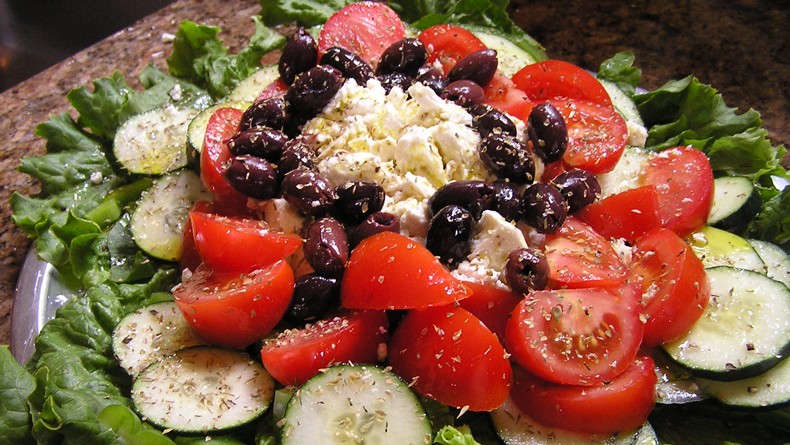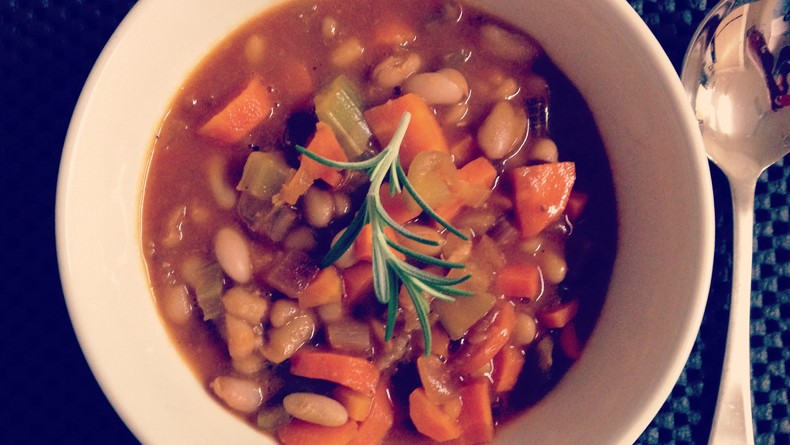The Health Benefits of a Mediterranean Diet
With Greek Independence Day on March 25, this is the perfect opportunity to acknowledge this amazing country and, most importantly, its cuisine! Not only does Greek food taste amazing, but also the health benefits of eating a traditional Mediterranean diet have been well documented.
Adopting a Mediterranean way of eating has been linked to lower rates of cancer, heart disease, obesity and Alzheimer’s disease. Ikaria, an island in Greece, is listed as one of the five “Blue Zones” identified by National Geographic, where there is an abundance of centenarians, most being free from dementia and chronic disease. Similarly, Japan’s very own Okinawa is also one of these zones.
Of course there are a number of factors that are believed to contribute to this longevity, including lifestyle factors, community and physical activity, but food also plays a very significant role.
The key points of a Mediterranean diet include:
- Eat unprocessed food focusing on plenty of fresh fruits and vegetables, preferably in season and local.
- Reduce intake of red meat and instead include more fish and seafood, great for bumping up your Omega-3 intake.
- Increase consumption of legumes, such as beans, lentils, and peas for protein and fiber .
- Include a high quality extra virgin olive oil regularly in your meals for the beneficial antioxidants and mono-unsaturated fats. Drizzle over salads and vegetables with a squeeze of lemon juice or vinegar as a substitute to highly processed, store bought salad dressings.
- Minimize the intake of dairy except for natural Greek yogurt, which adds a great dose of probiotics, important for good intestinal flora. In small quantities, good quality cheeses, especially feta, are an important addition to delicious Mediterranean dishes. Goat milk products are also popular in Ikaria.
- Switch to whole grains and avoid highly processed white breads, pastas and cereals.
- A moderate intake of alcohol (one standard glass of wine per day) with meals is considered a healthy part of the Mediterranean culture.
A lovely Greek friend recommended this recipe below. It is simple, requires minimal ingredients (all of which are readily available in Japan), and is very budget friendly. It also incorporates many of the key points above. Add a glass of good red wine and you’re set!
Greek Bean Soup (Fasolada)
Adapted from My Greek Dish
Serves 4
Gluten free / vegetarian / dairy free / sugar free
What You Need
2 x 425-gram cans cannellini beans (rinsed and drained)
2-3 carrots (peeled and diced)
1 red onion (diced)
3 stalks celery (diced)
130 milliliters good quality extra virgin olive oil
2 tablespoons tomato paste
Dash paprika (optional)
Salt and pepper
What to Do
- Prepare beans and vegetables as indicated above.
- Add half the olive oil to a large saucepan, add the chopped vegetables and sauté for two minutes.
- Add tomato paste to saucepan with dash of paprika, mix into the vegetables and sauté for a further two minutes.
- Add the beans to the saucepan with ½-1 cup boiling water (depending on consistency you desire). Stir to combine, cover with lid and simmer for 20 minutes.
- Add remaining olive oil and season generously with salt and pepper. Boil for a further three minutes, until the soup thickens a little.
- Ladle into serving bowls and top with fresh herbs or kalamata olives.
Top photo by Chelsea Nesvig.














Leave a Reply